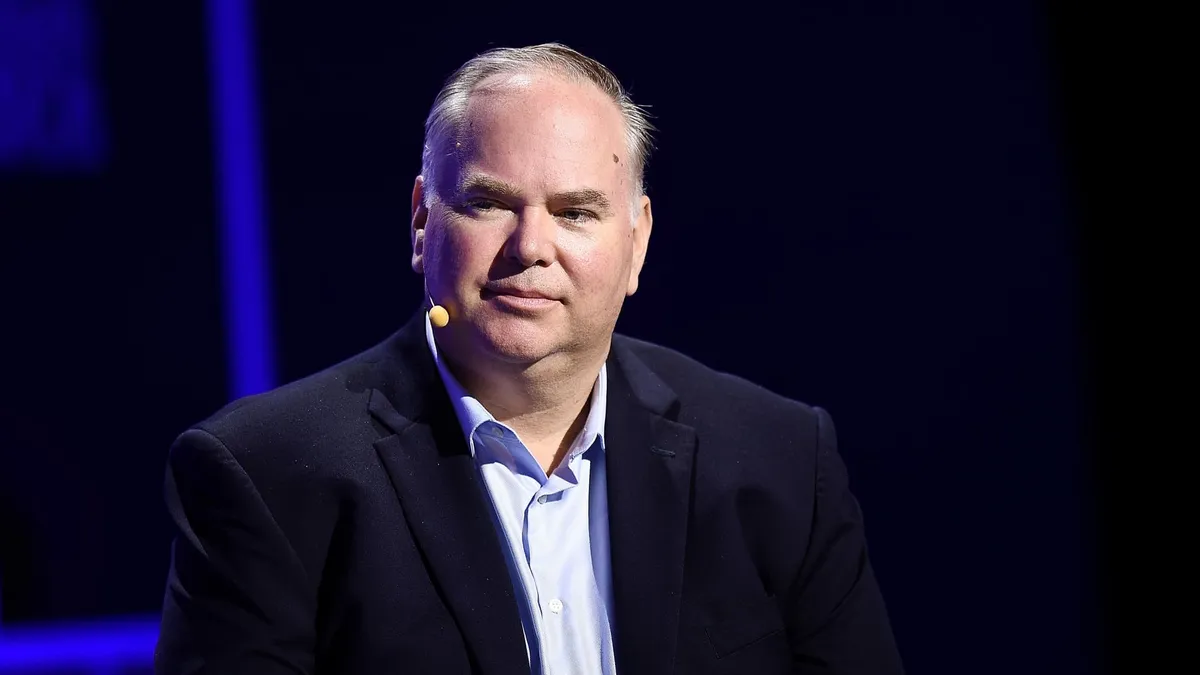
In a recent exchange at the Skift Global Forum in New York, Frontier Airlines CEO Barry Biffle vigorously defended his airline’s business model following comments made by United Airlines CEO Scott Kirby. Kirby had stated that the deep discount model in the U.S. airline industry was effectively "dead," prompting Biffle to respond with a tone of skepticism. "That's cute," Biffle remarked, emphasizing the need for Kirby to consider the current oversupply of flights in the United States.
Biffle’s remarks came in direct response to Kirby's assertion that Spirit Airlines, the largest discount carrier in the U.S., would likely go out of business. Spirit recently filed for its second bankruptcy in under a year, struggling to establish a stable financial footing. Kirby, when questioned about his prediction, confidently stated, "Because I'm good at math." He further added that if Biffle aimed for Frontier to be the largest among U.S. discount carriers, he would find himself "the last man standing on a sinking ship."
During the discussion, Biffle highlighted the lower operational costs of Frontier Airlines, which stands at $7.50 per available seat mile (excluding fuel). In contrast, United Airlines reported significantly higher costs of $12.36 in the second quarter. Biffle noted that Frontier caters to a customer base that might not fly otherwise, as well as those who prioritize affordability and are willing to spend on premium services, such as luxury accommodations, when traveling.
When asked about whether Frontier benefits from excess capacity left by United Airlines, Biffle drew an analogy: "That's like the CEO of Nordstrom saying, 'I allow customers to buy jeans from Walmart.'" This comment underscores the competitive dynamics in the airline industry, where both Frontier and United, along with carriers like JetBlue Airways, are actively expanding their flight offerings on key routes previously served by Spirit Airlines, aiming to attract its customers during this tumultuous period.
Ultra-low-cost airlines, including Frontier and Spirit, have faced significant challenges since the pandemic, including a surge in operational costs and an oversupply of domestic flights that have driven down fares. Additionally, they are contending with increased competition from larger airlines that offer both basic economy tickets and extensive global networks, which are attractive for frequent flyers. Kirby remarked, "Customers care about value, and they don't get value on an ultra-low-cost carrier," highlighting the shifting landscape of consumer expectations in air travel.
Historically, budget airlines have relied on low fares supplemented by fees for various services, including seat assignments and cabin baggage. However, as the industry evolves, airlines like Spirit and Frontier are pivoting to provide more upscale packages and bundled offerings that incorporate services they previously charged for individually. This shift aims to meet changing customer expectations and improve overall satisfaction.
Despite facing a $70 million net loss in the second quarter, Frontier Airlines is optimistic about its future. The airline forecasts unit revenue growth in the mid-to-high single digits for the third quarter, laying a solid foundation for anticipated profitability by 2026. Biffle's focus on operational efficiency and customer value may play a crucial role in navigating the current market challenges and ensuring the airline's long-term success.